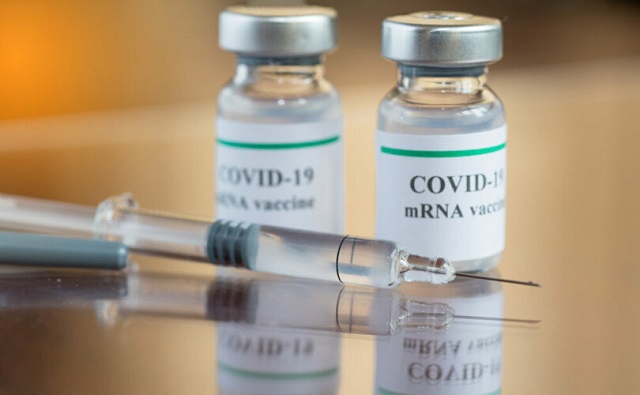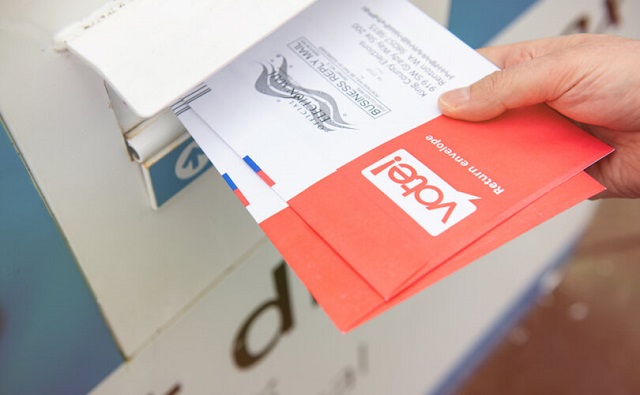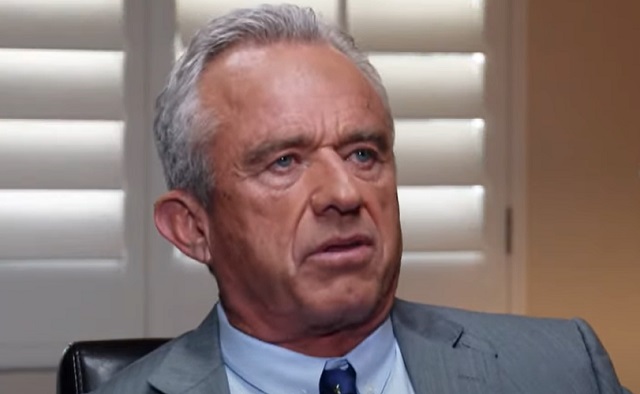COVID-19
How to interact with people in an uncertain world

I want to propose three general ground rules for interacting with people right now.

COVID-19
Trudeau gov’t has paid out over $500k to employees denied COVID vaccine mandate exemptions

From LifeSiteNews
The Department of Health paid $177,991, the Department of Foreign affairs paid $88,223, the Correctional Service of Canada paid $65,694, and Statistics Canada paid $33,240
Federal managers have paid out over $500,000 in settlements to employees that were suspended under the Trudeau government’s COVID vaccine mandate.
According to information obtained April 24 by Blacklock’s Reporter, records have revealed that Canadian federal managers have paid a total of $509,746 in damages and compensation to employees who were denied vaccine mandate exemptions.
“What are the total expenditures on compensation, severance packages and settlements to employees who were impacted by the government’s requirement during the COVID-19 pandemic that federal public servants provide proof of vaccination?” Conservative MP Ted Falk had questioned.
According to the official numbers released by Blacklock’s, the Department of Health paid $177,991, the Department of Foreign affairs paid $88,223, the Correctional Service of Canada paid $65,694, and Statistics Canada paid $33,240.
The Department of National Defence further revealed that it compensated three employees with “damages under the Canadian Human Rights Act on grounds of discrimination based on religion.”
Beginning November 2021, Prime Minister Justin Trudeau’s government mandated that a total of 275,983 employees from the RCMP, military and main federal departments provide proof of vaccination as a condition of employment.
Those who failed to do so risked dismissal or suspension without pay. While there were provisions for medical and religious exemptions, these were rarely granted. According to internal information, at the time of the mandates 95 percent of employees had already received the COVID vaccine.
When the federal mandate was lifted in June 2022, 2,560 employees had been suspended without pay for refusing to show proof of vaccination.
Indeed, implementing the vaccine mandate for federal employees has proved costly for Canadian taxpayers as Trudeau budgeted $198 million to enforce the COVID jabs on federal employees.
Conservative MPs questioned why the cost of the mandate was so high and pressed for details as to what the funds were used for.
“Treasury Board officials told us it was for rapid testing purchases and distribution,” Conservative MP Kelly McCauley (Edmonton West) told the House of Commons in 2021.
“The Treasury Board website shows there are about 3,400 unvaccinated employees,” he added. “That works out to about $24,000 per employee for rapid testing.”
Additionally, the Trudeau government will likely have to pay out even more former employees due to ongoing lawsuits over the mandates.
In October, LifeSiteNews reported on how over 700 vaccine-free Canadians negatively affected by federal COVID jab dictates have banded together to file a multimillion-dollar class-action lawsuit against the Trudeau government.
Similarly, Canadian taxpayers have already paid over $6 million via Canada’s Vaccine Injury Program (VISP) to those injured by COVID injections, with some 2,000 claims remaining to be settled.
COVID-19
Pfizer reportedly withheld presence of cancer-linked DNA in COVID jabs from FDA, Health Canada

From LifeSiteNews
According to information released by the Epoch Times, Pfizer purposefully failed to advise drug regulators, including Health Canada, the U.S. FDA and the European Medicines Agency, that the cancer-linked SV40 DNA enhancer was present in their experimental COVID shot.
Pharmaceutical giant Pfizer reportedly “chose not to” inform Health Canada, the U.S. Food and Drug Administration and other regulatory agencies that the cancer-linked Polyomavirus Simian Virus 40 (SV40) DNA sequence was in their widely distributed COVID-19 vaccine.
According to information released April 23 by the Epoch Times, Pfizer purposefully failed to advise drug regulators, including Health Canada, the U.S. Food and Drugs Administration, and the European Medicines Agency, that SV40 was present in their experimental COVID shot.
“I understand that there have been internal discussions at CBER [Center for Biologics Evaluation and Research] regarding the presents [sic] of an SV40 enhancer/promoter sequence, noting that its presence is unrelated to the purpose of the Pfizer’s plasmid as a transcription template for their mRNA COVID-19 vaccine,” Dr. Dean Smith, a senior scientific evaluator in Health Canada’s Vaccine Quality Division, wrote in an email to a colleague at the FDA about SV40.
The August email was obtained by an access to information request by the Epoch Times.
“Pfizer has communicated to us recently, that they apparently chose not to mention this information to EMA, FDA or HC at the time of their initial or subsequent submissions,” he added.
Smith noted that Kevin McKernan, a microbiologist and former researcher and team leader for the MIT Human Genome project, and Dr. Phillip J. Buckhaults, who is a professor of cancer genomics as well as the director of the Cancer Genetics Lab at the University of South Carolina, had raised in a public manner earlier this year how SV40 was present in the jabs.
While Health Canada originally told Canadians it was unaware of the SV40 enhancer’s presence, the agency has since confirmed the presence of the monkey-linked DNA sequence known to cause cancer when it was used in old polio vaccines.
SV40 is used to enhance gene transcription when the shots are made. It has been linked to the spread of turbo cancers in those who have been exposed to the virus via contaminated injections.
According to a 2002 study published in the Lancet, there is evidence that links the older polio vaccines, which were filed with SV40 contaminants, to certain forms of cancer.
Polio vaccines from the late 1950s to the early 1960s were all contaminated with SV40, after it was discovered that the virus was present in the monkey kidney cells which vaccine makers used to create the shots.
The authors of the 2002 study claim that the SV40-contaminated polio vaccine may have caused up to half of the 55,000 cases of non-Hodgkin’s lymphoma diagnosed each year.
SV40, according to the late vaccine developer Dr. Maurice Hilleman, was put in the polio vaccine and then put into wide circulation by Big Pharma company Merck inadvertently.
Unfortunately, this is not the first evidence that Pfizer hid the presence of SV40 from drug regulators.
According to Dr. Janci Lindsay, who works as the director of toxicology and molecular biology for Toxicology Support Services, Pfizer did not disclose the presence of SV40 “promoters” to both Health Canada and the U.S. Food and Drug Administration, as well as the European Medicines Agency.
She said, as reported in The Epoch Times, that the drug company “hid them.”
“So it’s not just the fact that they’re there, it’s the fact that they were purposefully hidden from the regulators,” she noted.
The news of Pfizer’s purposeful withholding of information comes as adverse effects from the first round of COVID shots have resulted in a growing number of Canadians who have filed for financial compensation over alleged injuries from the jabs, via Canada’s Vaccine Injury Program (VISP).
Thus far, some VISP has already paid over $6 million to those injured by COVID injections, with some 2,000 claims remaining to be settled.
Additionally, a recent study done by researchers with Canada-based Correlation Research in the Public Interest showed that 17 countries have found a “definite causal link” between peaks in all-cause mortality and the fast rollouts of the COVID shots as well as boosters.
-

 Business24 hours ago
Business24 hours agoHonda deal latest episode of corporate welfare in Ontario
-

 espionage1 day ago
espionage1 day agoOne in five mail-in voters admitted to committing voter fraud during 2020 election: Rasmussen poll
-

 Automotive17 hours ago
Automotive17 hours agoThe EV ‘Bloodbath’ Arrives Early
-

 COVID-192 days ago
COVID-192 days agoTrudeau gov’t has paid out over $500k to employees denied COVID vaccine mandate exemptions
-

 International2 days ago
International2 days agoRFK Jr tells EWTN: Politicization of the CIA, FBI, Secret Service under Biden is ‘very troubling’
-

 CBDC Central Bank Digital Currency8 hours ago
CBDC Central Bank Digital Currency8 hours agoA Fed-Controlled Digital Dollar Could Mean The End Of Freedom
-

 Brownstone Institute7 hours ago
Brownstone Institute7 hours agoThe Numbers Favour Our Side
-

 Addictions2 days ago
Addictions2 days agoWhy can’t we just say no?









